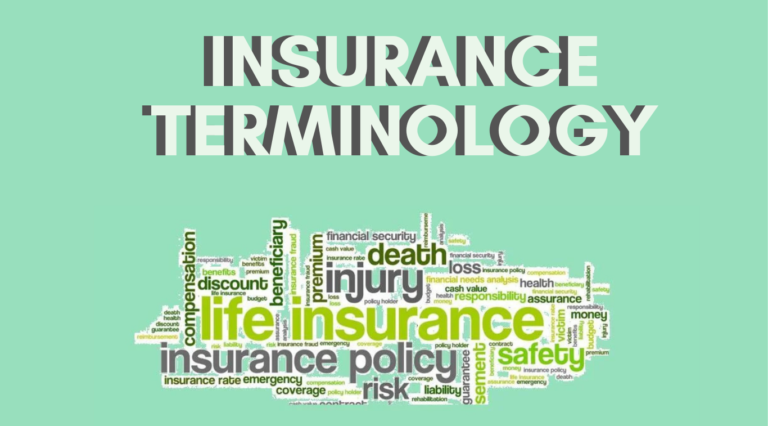CSR vs ICR Explained: Which Metric Matters More for Health Insurance?
When you’re buying health insurance in India, it’s easy to get caught up in comparing premiums or fancy add-ons. But here’s what really matters—will your insurer actually settle your claim when the time comes? That’s where the real deal lies, and it all comes down to CSR vs ICR in health insurance.
Don’t worry if these terms sound too technical—we’re here to make them super easy to understand. In this blog, we’ll explain what CSR (Claim Settlement Ratio) and ICR (Incurred Claim Ratio) mean, why they matter, how to read them like a pro, and which one should matter more to you as a policyholder.
Stick around—we’re breaking it all down in plain English with real data, relatable examples, and zero jargon. Let’s get into it!
🧠 What is Claim Settlement Ratio (CSR)?
CSR simply tells you how many claims an insurer settled out of the total they received in a year. It’s a direct indicator of how likely your claim is to get approved.
➕ CSR Formula:
CSR = (Total Claims Settled / Total Claims Received) × 100
✅ Example:
If an insurer received 1000 claims and settled 950, then CSR = 95%.
💡 Why It Matters:
- Higher CSR = higher chance your claim gets approved.
- It’s a straightforward trust score.
- Great for people who want to know if their insurer is good at keeping promises.
Also Read :- https://ipofront.in/no-claim-bonus-health-insurance-explained/
🔍 Latest CSR Data (FY 2022–23)
Here’s a look at how top insurers in India performed:
| Insurance Company | Claim Settlement Ratio (CSR) |
|---|---|
| Care Health Insurance | 100% |
| Niva Bupa Health Insurance | 100% |
| ManipalCigna Health Insurance | 99.96% |
| Star Health Insurance | 99.21% |
| Aditya Birla Health Insurance | 99.01% |
| HDFC ERGO General Insurance | 98.59% |
| ICICI Lombard General Insurance | 98.53% |
| Acko General Insurance | 97.68% |
| Bajaj Allianz General Insurance | 93.54% |
👉 Anything above 95% is considered excellent. Choose insurers in that range for peace of mind.
🧾 What is Incurred Claim Ratio (ICR)?
ICR shows how much an insurer paid in claims compared to the premiums it collected.
➕ ICR Formula:
ICR = (Total Claims Paid / Total Premium Collected) × 100
✅ Example:
If a company collected ₹100 crore in premiums and paid out ₹85 crore in claims, ICR = 85%.
💡 Why It Matters:
- High ICR? They’re paying out a fair share.
- Low ICR? They might be pocketing too much or rejecting more claims.
- ICR reflects the financial health and efficiency of the insurer.
Also Read :- https://ipofront.in/why-guaranteed-return-insurance-plans-may-not-be-a-smart-investment-2025/
🔍 Latest ICR Data (FY 2023–24)
| Insurance Company | Incurred Claim Ratio (ICR) |
|---|---|
| Care Health Insurance | 57.69% |
| Niva Bupa Health Insurance | 59.02% |
| ManipalCigna Health Insurance | 63.78% |
| Star Health Insurance | 66.47% |
| Aditya Birla Health Insurance | 68.31% |
| HDFC ERGO General Insurance | 80.98% |
| ICICI Lombard General Insurance | 78.85% |
| Bajaj Allianz General Insurance | 84.96% |
| Go Digit General Insurance | 93.87% |
✅ Ideal ICR range: 60% – 90%. This suggests a balance between being customer-friendly and financially healthy.
📊 CSR vs ICR: Key Differences at a Glance
| Feature | CSR | ICR |
|---|---|---|
| What it Measures | % of claims approved | % of premiums paid out in claims |
| Focus Area | Claim approval efficiency | Financial efficiency & stability |
| Importance to You | Likelihood of claim being settled | Premium fairness & future stability |
| Ideal Range | Above 95% | Between 60% – 90% |
| Type of Insight | Operational trust | Financial trust |
🧭 Which Metric Should YOU Care More About?
🎯 For Policyholders: CSR Wins
If you’re a retail customer (which most of us are), CSR is the MVP.
Why?
- You want your claim approved, not rejected.
- CSR reflects the insurer’s behaviour during your time of need.
- A high CSR gives peace of mind.
👉 Aim for insurers with 95%+ CSR.
💼 But Don’t Ignore ICR
While CSR helps you understand how likely your claim is to be settled, ICR shows if the company can sustain that service in the long run.
If ICR is:
- Too low (<50%): They might be rejecting a lot of claims or collecting very high premiums.
- Too high (>100%): They may be overpaying and running at a loss — unsustainable in the long run.
👉 Sweet spot? 60% – 90%
🔍 Example: Best of Both Worlds
| Company | CSR | ICR |
|---|---|---|
| Care Health Insurance | 100% | 57.69% |
| Niva Bupa Health Insurance | 100% | 59.02% |
| ManipalCigna Health Insurance | 99.96% | 63.78% |
These insurers strike a healthy balance – great for new buyers looking for reliability and long-term safety.
Also Read :- https://ipofront.in/key-factors-before-filing-health-insurance-claim/
📉 Health Insurance Landscape in India (2023–24 Snapshot)
| Metric | Data |
|---|---|
| Total Health Claims Settled | 2.69 crore |
| Average Payout Per Claim | ₹31,086 |
| Total Net Incurred Claims | ₹76,160 crore (+18% YoY) |
| Overall Industry ICR | 88.15% (down from 88.89% in 2022–23) |
| % Claims Settled in Cashless Mode | 66.16% |
| % Settled Through TPAs | 72% |
| Claim Satisfaction (Cashless) | 89% |
| Claim Satisfaction (Reimbursement) | 79% |
⚠️ Common Issues in Claim Settlements
- 50% of claims were rejected over the last 3 years.
- Top reasons: non-disclosure, incomplete documentation, policy lapses.
- In FY24 alone, ₹26,000 crore worth of claims were denied.
🎯 Moral of the story: Buy from a high-CSR insurer, disclose everything, and read the fine print.
📈 Medical Inflation = Premium Spike
Did you know?
- Medical inflation in India is 12–14%, nearly double the general inflation rate.
- This means your premiums are likely to increase year-on-year.
👉 Choosing an insurer with a good ICR ensures your premiums aren’t unreasonably inflated compared to actual claim pay-outs.
Also Read :- https://ipofront.in/insurance-jargon-decoded/
📝 What to Check Before You Buy
Here’s a quick checklist:
- ✅ CSR above 95%
- ✅ ICR between 60%–90%
- ✅ Large network hospital list in your area
- ✅ Quick claim settlement turnaround time
- ✅ Transparent policy terms
- ✅ Stable premium trends (ask about rate hikes)
📌 Final Thoughts: CSR or ICR – What’s the Deal?
Let’s be real. Most people care about whether their insurer will actually pay when the hospital bill comes. That’s why CSR is king.
But don’t forget — ICR matters if you want to stick with the same insurer long-term without unexpected premium hikes.
So, when choosing your next health insurance plan, think:
- 💼 CSR for claim confidence.
- 💰 ICR for long-term peace of mind.
Go with insurers who strike a balance, like Care, Niva Bupa, or ManipalCigna — and you’ll be in safe hands.
Sure! Here are 5 SEO-optimized FAQs for your blog on CSR vs ICR in Health Insurance:
FAQs (Frequently Asked Questions)
1. What is the difference between Claim Settlement Ratio (CSR) and Incurred Claim Ratio (ICR)?
CSR indicates the percentage of claims an insurer settles out of the total received, showing how likely your claim will be approved. ICR reflects the percentage of premiums paid out as claims, giving insights into the insurer’s financial health and sustainability.
2. Is a higher CSR always better when choosing health insurance?
Yes, a higher CSR (typically above 95%) suggests the insurer settles most of its claims, making it a key factor when choosing a health policy. It indicates better claim reliability and customer service.
3. What is a good ICR range for a health insurance company in India?
A healthy ICR falls between 60% and 90%. If it’s too low, the insurer may be rejecting more claims or charging high premiums. If it’s too high, they might not be financially sustainable.
4. Can I rely only on CSR while buying a policy?
No. While CSR shows how often claims are settled, it doesn’t reflect whether they were fully paid or delayed. Combine it with ICR, customer reviews, network hospitals, and policy terms for a complete picture.
5. Where can I find the latest CSR and ICR data for insurance companies?
You can find updated CSR and ICR data in the IRDAI’s Annual Report, or through credible sources like Policybazaar, insurance aggregators, and insurer websites. Always check for the latest financial year data.
Useful Links :-
Health Insurance Claim Settlement Ratio 2025 | RenewBuy
Health Insurance Claim Settlement Ratio (CSR) 2025
The Hidden Power of Your Health Insurance Claim Settlements
How well does health insurer settle claims? Latest Irdai incurred claim ratio of general, health insurance companies in India – The Economic Times
Mediclaim India: Nearly 70% health claim users opting for reimbursement mode don’t have enough liquid savings to pay bills: Survey – The Economic Times
Health insurance renewals up 10% in two years despite premium hikes: Here’s why – CNBC TV18
Survey finds nearly 50% of health insurance claims rejected in last 3 years: Top 5 reasons – CNBC TV18







